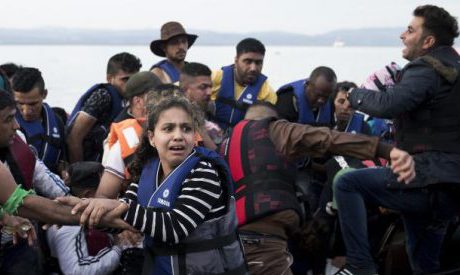She spent endless days and nights fleeing a warzone as a tiny child, first on foot through the darkness and then by boat after they shut the borders in her native Sierra Leone.
But when Yarrie Bangurra saw the camp she was supposed to be staying in, she couldn’t understand what it was her family had come to.
“It was isolated and rocky and dusty,” Yarrie, now 22, says. “There were just tents and people like us who had run from the war. It got me confused. We didn’t know what was happening from there.
“I was ill and I was shaking a lot. My mum thought it wasn’t safe for me in this environment.”
Like so many fleeing persecution throughout history, Yarrie was about to discover the journey of a refugee does not end as soon as you escape the conflict zone.
Protecting refugees like Yarrie is the core mandate of the UNHCR, the UN Refugee Agency originally set up in 1951 to help those waiting to return home after World War II.
Refugees are forced to flee. They have no other choice unlike most migrants who leave their homes voluntarily to improve living conditions.
To stay means risking their lives and freedoms because of conflict or persecution on the basis of race, religion, nationality, social or political grouping.
When Yarrie and her family fled the intense rebel fighting in Sierra Leone in the late 1990s, it was to be the start of years of hunger and hardship in neighbouring Guinea.
“I never dreamed of living in a camp,” she says today. “I was thinking why, why, why? Even now I have nightmares. When I hear the word ‘camping’ I get so scared and fearful even though I know it is a fun thing. Horrible things happened in that time of our lives.” Continue reading
Sources
- The Guardian
- Image: news.com.au
